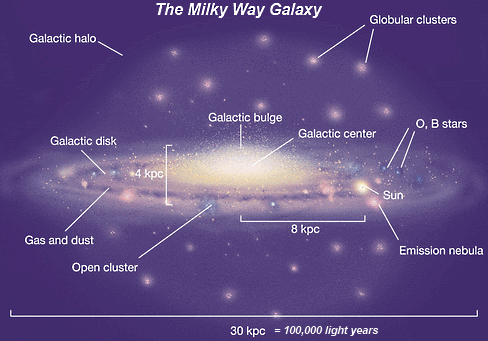|
|
|
|
|
|
|
News & Views item - March 2013 |
![]() Astronomy, Astrophysics and the 457 Visa. (March 11, 2013)
Astronomy, Astrophysics and the 457 Visa. (March 11, 2013)
When the director of the University of Sydney research centres for astronomy and astrophysics, Professor Bryan Gaensler, panics that the federal government appears to be contemplating the axing of the 457 visa program (the program is ostensibly designed to alleviate short-term skills shortages) the Labor government of Prime Minster Julia Gillard has either a serious problem in communications, or suffers from crass stupidity.
 According
to the Department of Immigration and Citizenship: The subclass 457 visa is
for skilled workers from outside Australia who have been sponsored and nominated
by a business to work in Australia on a temporary basis. A business can sponsor
a skilled worker if they cannot find an appropriately skilled Australian citizen
or permanent resident to fill a skilled position listed in the
Consolidated Sponsored Occupations List.
According
to the Department of Immigration and Citizenship: The subclass 457 visa is
for skilled workers from outside Australia who have been sponsored and nominated
by a business to work in Australia on a temporary basis. A business can sponsor
a skilled worker if they cannot find an appropriately skilled Australian citizen
or permanent resident to fill a skilled position listed in the
Consolidated Sponsored Occupations List.![]()
What the Minister, Brendan O'Conner, said yesterday on ABC Television in an attempt to clarify the government's stance was: "What we don't accept is that you allow this scheme to undermine employment conditions or allow it to become the first option for employers." and went on to cite as an example: "We have seen over several years a fall in real wages between five and 12 per cent in those positions held by (IT) applicants," to which Opposition spokesman Scott Morrison retorted that IT: "barely made the top five," of 457 visa grantees.
The Age reports that according to "Mr O'Connor a ministerial
advisory council on skilled migration last year recommended reforms to protect
the interests of local workers.
'That is what the government is going to do'".
Now, Julie Hare reports in The Australian on her interview with Professor Gaensler:
If I had not been able to recruit the best people in the world, which I did in my previous job (at Harvard), I would not have moved back [to Australia] in 2006. Typically, when we advertise a position there are maybe 10 people in the world who meet the job description. You really need to be prepared to go to every country in the world to find the right person.
As an example Professor Gaensler cited Xiaohui Sun, a post-doctoral fellow, who has developed a computer simulation of our Milky Way Galaxy: "Xiaohui is the only person in the world who can simulate the Milky Way," Professor Gaensler told Ms Hare and went on to point out that generous provisions for partners in 457 visas even gave him a "competitive advantage" over other institutions, including Harvard, Cambridge and Oxford: "Unmarried and same-sex partners get work rights. In the US, unless you are a heterosexual married couple, forget it."
Professor Gaensler also makes the point that a small number of his 457 staff take up permanent residency/citizenship while those that move on maintain useful research ties with him:
They are still friends and collaborators. They come back here all the time to work on mutual projects. It forges long-term links. Australia's default position is insularity; we just end up talking to ourselves. It's a constant effort to keep ourselves relevant and internationally competitive. But having access to a global pool of scientists is the key to ensuring that position.